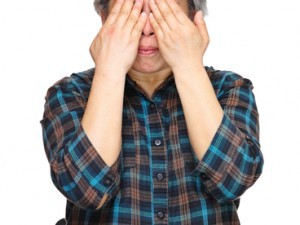 Life should be exciting and pleasurable. How many times have you said that to yourself? Perhaps as you have waited in a traffic jam or opened all those bills and invoices for last month’s purchases!
Life should be exciting and pleasurable. How many times have you said that to yourself? Perhaps as you have waited in a traffic jam or opened all those bills and invoices for last month’s purchases!
However, for life to be enjoyable we all need to be able to manage the challenges that we face. Unfortunately, there will be times when we feel we cannot cope and it is then that we may experience stress. But experiencing signs of stress does not mean you are a weak individual who cannot cope – it just means you are human like everyone else! We all react differently to the situations we have to face because we are all unique individuals. Some of us may be passive personalities whilst others may be very competitive and our reaction to pressure, and especially excess pressure, will vary enormously. And dependent on our reaction, will be the state of our wellbeing and health.
Life in the 21st century is very different to that of only a few years ago and perhaps it would be useful to look at how we can improve our stress levels during the coming year.
‘Stress is the adverse reaction people have to excess pressure or other types of demands placed upon them. It arises when they perceive that they are unable to cope with those demands’ HSE (www.hse.gov.uk).
It is often mistakenly thought that stress is good for people, when in fact long-term stress invariably harmful. A certain amount of pressure can indeed motivate and can therefore be useful, but stress is never so. People perform well when pressure is effectively managed.
That which causes us to be stressed is the way that we think about the situation rather than the situation itself. Problems occur when the pressure we are under seems to be overwhelming or out of control. We may perceive ourselves as not possessing the necessary skills to manage the pressure, and so we feel unable to cope.
Many people experience stress at some point in their lives. Stress is like a light switch; your mind turns it on automatically but you need to learn how to turn it off.
Common signs of stress
Some of the most common signs of stress are:
• Mood swings
• Anxiety and/or depression
• Skin problems
• Tiredness
• Muscle tension
• Poor concentration/ memory
• Waking unrefreshed
• Changes in eating patterns
• Low self esteem
• Digestive problems
It is very important to take positive action when faced with stress as, if experienced over a prolonged period of time, it can seriously damage mental and physical health.
Coping strategies
The following proven coping strategies can really start to help reduce the effects of any stress in your life.
- Be self-aware of your own warning signs – maybe this could be a sudden feeling of anxiety, extreme tiredness or feeling very tearful.
- Review what is really causing your stress. Think about what action you could take to change things. Examine whether your expectations of yourself, and others, are realistic?
- At times of stress, we often fall into the trap of either not eating sufficiently or over-eating, or even smoking.
- Try always to eat a balanced diet.
Eat complex carbohydrates such as wholemeal bread and pasta, rather than biscuits or chocolate! Remember, what you eat influences mood.
Eat plenty of fresh fruit and vegetables and keep sugar and salt intake to a minimum. This will help to support your immune system in its fight against colds and flu.
Drink plenty of water, it helps general health as it rehydrates your body.
Try and keep coffee and all caffeine consumption to a minimum and avoid using nicotine or any other self-prescribed drugs. - Do not feel guilty about including a period of relaxation every day. We all need to ‘switch off’ from time-to-time. Do something you enjoy that complements your life-style. This could, for example, be reading, listening to music, yoga or meditation, enjoying a warm bath with aromatherapy oils added. Remember – to be comfortable both inside and out, is a vital part of living successfully!
- Make sure also that regular exercise is part of your everyday life and which is suitable for you. Make sure you choose an exercise that you like or you wont stick to it! If you have any doubts as to the correct intensity or duration then always check with your doctor before starting a new regime.
- Do you often find yourself saying “Yes!” when in fact you mean “No!”? Are you always late for appointments? Do you get frustrated knowing you could have done a better job if only you had organised your time better? Then learn how to be more assertive and manage your time properly. Many of us waste a lot of the day, then make excuses for things we have not done!
- Consider attending a stress management training course. You do not have to be stressed to attend one of these. It is far better to know what to do prior to experiencing stress than waiting until it happens!
- The secret to managing stress is learning how to control your personal environment, and the pressures within it, by strengthening all your resources of energy and utilising your time efficiently.
Tips to Avoid Undue Pressure
There are numerous action you can take to avoid undue pressure such as:-
- Avoid stress by finding your natural SPEED
- Sleep – get a minimum of 7 hours every night
- Priorities – Focus on that which is most important
- Empathy – Find friends who will empathise with you
- Exercise – set an exercise goal to meet every week
- Diet – limit sugar, heavy meals, alcohol, smoking and caffeine
- Talk to Us About Stress!
The International Stress Management Association [UK] would love to hear your views about stress. Please take part in a major new survey to mark National Stress Awareness Day on Wednesday 2nd November 2016 http://bit.ly/2dqvfTs
The Author
Carole Spiers is an International Motivational Speaker and business consultant, as well as CEO of Carole Spiers Group. As a C-suite Executive Consultant, she specialises in communications skills and building resilience. Carole is a sought after BBC Guest-Broadcaster and best-selling author. She is Chair of the International Stress Management Association [UK] and past president of the London Chapter of the Professional Speaking Association www.carolespiersgroup.co.uk / http://www.isma.org.uk






